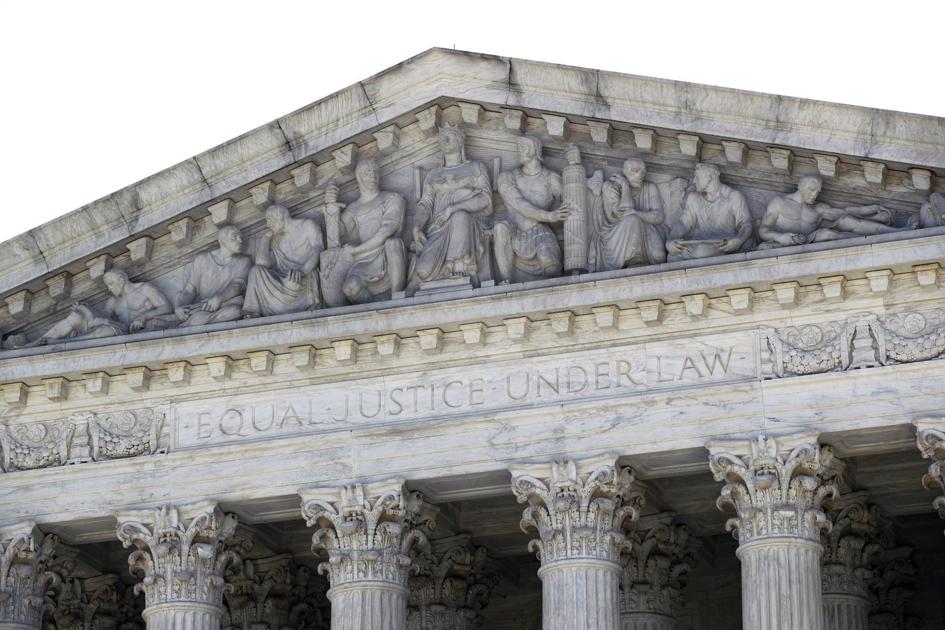
Two U.S. Supreme Court rulings this term could have big ramifications for Idaho.
In a 5-4 ruling in the case Espinoza v. Montana Department of Revenue, the justices ruled that states can’t discriminate against religious schools by denying them state funds for which a non-religious public school would be eligible, effectively overturning the so-called “Blaine amendments” in Idaho and 36 other states, opening the door to legislation letting religious schools take part in scholarship or voucher programs.
And the 6-3 ruling in the case Bostock v. Clayton County at least partially did what the Idaho Legislature has refused to do for a decade, extending the protections of federal anti-discrimination laws to gay and transgender people when it comes to employment.
Named after James Blaine, a Republican senator from Maine and failed presidential candidate for whom Blaine County, Idaho is named, Blaine amendments were an outgrowth of 19th-century identity politics and tensions between this country’s earlier Protestant settlers and the Catholic immigrants who were arriving in large numbers at the time. Public schools in many states at the time had an explicitly Protestant cast, with students saying Protestant prayers and reading from the King James Bible. This led Catholics to demand state funding for their own schools, which led to a movement to prevent this. Blaine narrowly failed in his quest to get an amendment barring funding for religious schools added to the U.S. Constitution, but others succeeded at the state level in most states, adding state constitutional amendments which, like Idaho’s, ban any public money “to help support or sustain any school, academy, seminary, college, university or other literary or scientific institution, controlled by any church, sectarian or religious denomination whatsoever.”
The ruling won’t have an immediate impact on the state budget since private schools, religious or otherwise, don’t get public funds now, said state Department of Education spokeswoman Kris Rodine. However, this ruling would seem to remove the legal barriers to the idea of creating scholarship or voucher programs to benefit students at private, including religious, schools, and such bills have been introduced a few times in recent years and seem to have strong support among Republican lawmakers. Opponents of such proposals say they undercut funding for public schools by sending state money to private ones.
“I expect you’ll see bills like that come forward this session,” said Rep. Wendy Horman, R-Idaho Falls.
Horman, who is a former Bonneville Joint School District 93 trustee, has voted for bills in the past to create scholarship programs to help underwrite private school tuition. She said she supports the idea.
“I’ve worked in a lot of space in the education system, and my children have utilized every option available,” she said. “I think it’s a big win for families and students who maybe find the traditional system isn’t working for them, but they pay taxes.”
In the Bostock case, the judges ruled Title VII of the Civil Rights Act of 1964, which forbids employment discrimination based on “race, color, religion, sex, or national origin,” protects gay and transgender people under “sex.” Essentially, if you fire John because he’s attracted to men you’re engaging in sex-based discrimination because you wouldn’t fire Jane for the same thing.
“Obviously, for us, it was a resounding win,” said Jeremy Woodson, spokesman for the American Civil Liberties Union of Idaho, which supports anti-discrimination legislation at the state level. “We’re happy the court affirmed, essentially, what we already knew.”
However, Woodson said the Supreme Court ruling doesn’t change the need for state-level legal protections.
“Add the Words” advocates have been pushing for about a decade to add sexual orientation and gender identity to the categories covered by the anti-discrimination provisions of the Idaho Human Rights Act, but the Republicans who make up 80% of the Legislature are largely against the idea. The farthest such a bill has ever gotten is a committee hearing in 2015, when it was defeated on a party-line vote, and attempts since then to broker a compromise that could get majority support haven’t yet borne fruit. Meanwhile, some advocates have started working at the local level and about 16 municipalities have passed local anti-discrimination ordinances protecting gay and transgender people. The Idaho Falls City Council voted in May to extend the more limited anti-discrimination ordinance the city passed in 2013 to cover public accommodations, meaning someone now can’t, for example, refuse to serve someone in a restaurant or store because they are gay or transgender.
“The advocacy doesn’t change here for the state of Idaho, because there are still gaps that exist, and we want to make sure those are filled in,” he said.
"impact" - Google News
July 12, 2020 at 08:00PM
https://ift.tt/3iQKx37
Court Rulings on Religious Schools, Discrimination Could Have big Idaho Impact - bigcountrynewsconnection.com
"impact" - Google News
https://ift.tt/2RIFll8
Shoes Man Tutorial
Pos News Update
Meme Update
Korean Entertainment News
Japan News Update
Bagikan Berita Ini














0 Response to "Court Rulings on Religious Schools, Discrimination Could Have big Idaho Impact - bigcountrynewsconnection.com"
Post a Comment